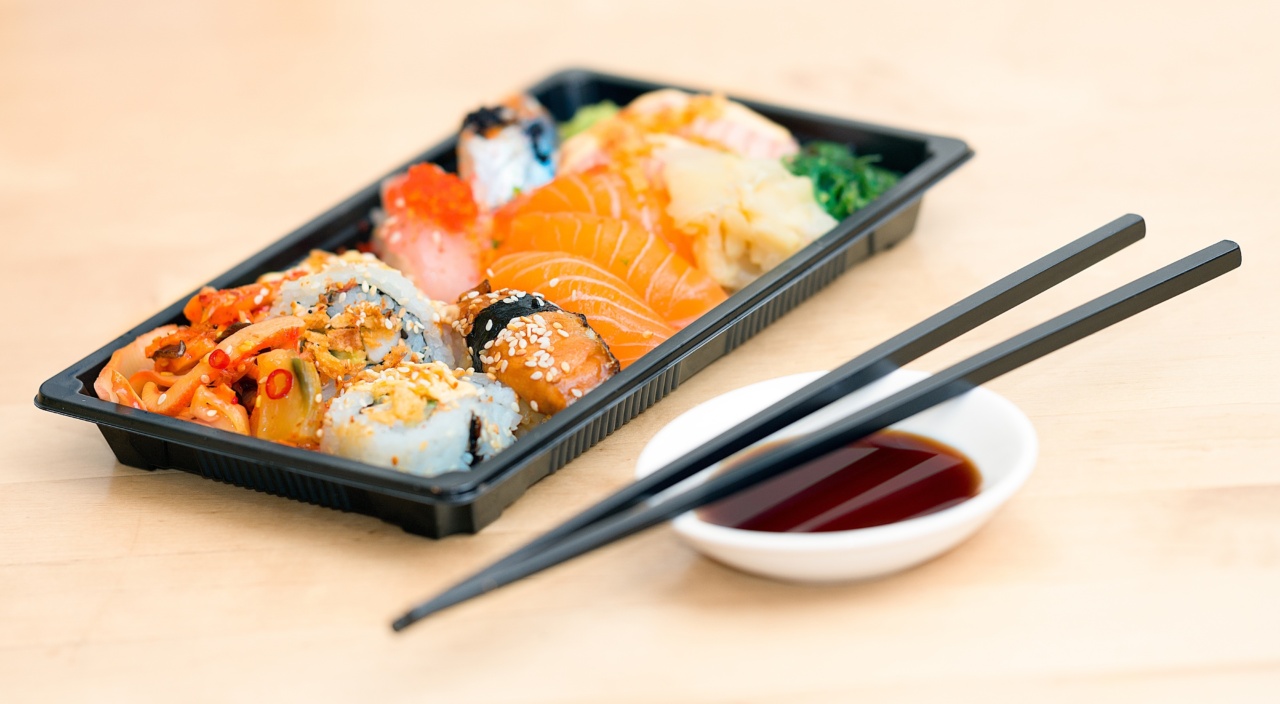Pregnancy is an exciting time in a woman’s life, but it also comes with a host of concerns and questions about what is safe to eat. Among the many foods that expectant mothers may wonder about is sushi.
Sushi rolls are a popular delicacy among many individuals, but can they be enjoyed during pregnancy? Let’s explore this topic in-depth to help you make an informed decision.
The concern with consuming sushi during pregnancy
Sushi is typically made with raw or undercooked seafood, which can pose a risk of foodborne illnesses. The two primary concerns are the potential exposure to parasites and bacteria, such as Listeria and Salmonella.
While these risks exist for everyone, they can be particularly harmful to pregnant women.
Parasites like Anisakis can be found in certain types of fish and can cause an infection known as anisakiasis. This infection can result in nausea, vomiting, abdominal pain, and in severe cases, it may require medical intervention.
Bacteria like Listeria can cross the placenta, potentially leading to infection or even miscarriage.
Pregnant women are about 10 times more likely than the general population to contract listeriosis, and the consequences can be devastating for both the mother and the unborn baby.
Minimizing risks
While it is generally recommended to avoid raw or undercooked sushi during pregnancy, there are precautions you can take to minimize the risks if you’re craving a sushi fix:.
1. Opt for cooked sushi
Instead of indulging in raw sushi rolls, choose cooked options. This could include rolls with cooked seafood like shrimp, eel, or crab. Cooked sushi options significantly reduce the risk of foodborne illnesses.
2. Check the quality
If you decide to eat sushi during pregnancy, it’s important to make sure you are consuming it from a reputable source. Choose restaurants with a good reputation for cleanliness and food safety.
Proper storage and handling of seafood greatly reduce the risk of bacterial contamination.
3. Try vegetarian options
Vegetarian sushi rolls are a great alternative during pregnancy. They often contain ingredients like cucumber, avocado, and carrot, which provide essential nutrients while eliminating the risks associated with raw fish.
4. Make it yourself
If you enjoy making your own meals, consider preparing sushi rolls at home using cooked seafood or vegetarian ingredients. This way, you have complete control over the ingredients and can ensure their freshness and quality.
5. Be cautious with condiments
Common sushi condiments, such as soy sauce and wasabi, are generally safe to consume during pregnancy. However, be cautious with homemade or unpasteurized versions that may contain raw eggs or other potential risks.
6. Discuss with your healthcare provider
Every pregnancy is unique, and it’s always a good idea to consult your healthcare provider regarding your individual circumstances. They can provide personalized advice and guidance based on your medical history and any specific concerns.
The bottom line
In conclusion, while sushi rolls can be enjoyed during pregnancy, it’s crucial to take certain precautions to reduce the risk of foodborne illnesses.
Opt for cooked sushi, choose reputable restaurants, explore vegetarian options, consider preparing sushi at home, be cautious with condiments, and most importantly, consult your healthcare provider.




























